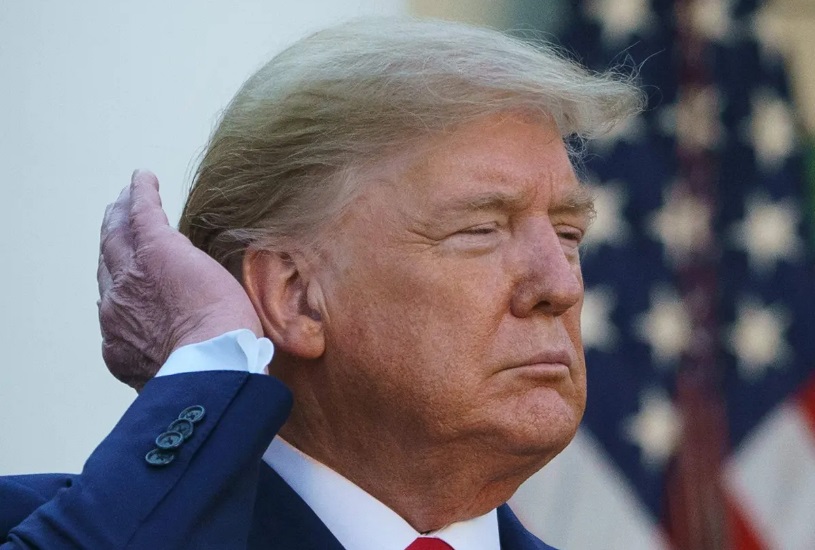The U.S. Energy Department proposed easing water efficiency requirements for shower heads today following multiple complaints from President Trump about how low water flow is impeding his ability to properly wash his hair.
You can’t make something like this up.
“So what do you do? You just stand there longer or you take a shower longer? Because my hair – I don’t know about you, but it has to be perfect,” said Trump last month at the White House.
The plan would allow manufacturers to bypass a 2.5 gallon-per-minute maximum flow rate set by Congress in the 1990s.
Under current law, each shower head in a shower counts toward that limit.
If finalized, the administration plan would allow multiple shower nozzles with 2.5 gallon-per-minute heads to each meet that requirement separately.
The rule comes after Trump has railed against shower heads that go “drip, drip, drip,” as well as low-flow toilets and faucets among other appliances.
“You turn on the shower — if you’re like me, you can’t wash your beautiful hair properly,” Trump said this month during a visit to a Whirlpool Corp. manufacturing plant in Ohio. “You waste 20 minutes longer. Please come out. The water — it drips, right?”
The rule, if finalized, would subvert a 1992 law signed by Republican President George H.W. Bush, and would lead to the waste of enormous amounts of water and energy, and increase greenhouse gas emissions, according to the Appliance Standards Awareness Project, an environmental group.
“It’s a gimmick to put multiple nozzles on a shower head,” Andrew deLaski, the group’s executive director, said in an interview. “There really is no good reason to reduce water and energy standards that have been around for 20 years.”
Consumer Reports joined in panning the move.
David Friedman, a Consumer Reports vice president and former Energy Department official, said in 2016 that group found “the best shower heads we tested provided a pleasing flow while meeting the federal flow-rate standard.”
Trump is campaigning for reelection and trails in opinion polls ahead of the vote Nov. 3.
If he wins and the proposal advances it could also face court battles.
